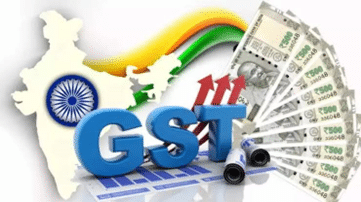Goods and Services Tax
Why in the news?
- Recently there is a surge in demand notices sent by central and state Goods and Services Tax (GST) authorities to various companies across sectors.
- Several companies, HDFC Life Insurance, Dabur, and Delta Corp, have received substantial GST demand notices, running into hundreds of crores.

The Case
- These notices pertain to the period following the shift to the GST regime, marked by initial uncertainty and issues, and they gained momentum toward the end of the limitation period on September 30.
- The notices cover aspects like “underpayment” of tax, “incorrect availment of input tax credit,” and “reconciliation differences” between returns filed and financials.
- Concerns Raised: multiplicity of notices, the absence of a uniform process, and the lack of coordination between the central and state tax authorities.
- The notices have also extended to multinational companies regarding the levy of tax on expats and seconded employees.
- Need for improvement in System:
- The tax administration has detected over 6,000 cases of fake input tax credit between April 2020 and September 2023, involving tax evasion of more than ₹57,000 crores.
- To ensure that companies pay their due taxes while minimizing leakages, the system needs simplification, reduction of uncertainty, and a decrease in compliance burdens.
- Without such improvements, the situation may lead to more litigation.
GST
- GST was implemented by the 101st Constitutional Amendment Act.
- GST, or Goods and Services Tax, is an indirect tax levied in India.
- It replaced various indirect taxes like VAT, excise duty, and service tax.
- GST is a Destination based tax.
- Implemented on July 1, 2017, GST has a multi-tiered structure with different tax rates for different goods and services.
- GST promotes a unified market by eliminating tax barriers between states.
- The revenue generated is shared between the central and state governments.



